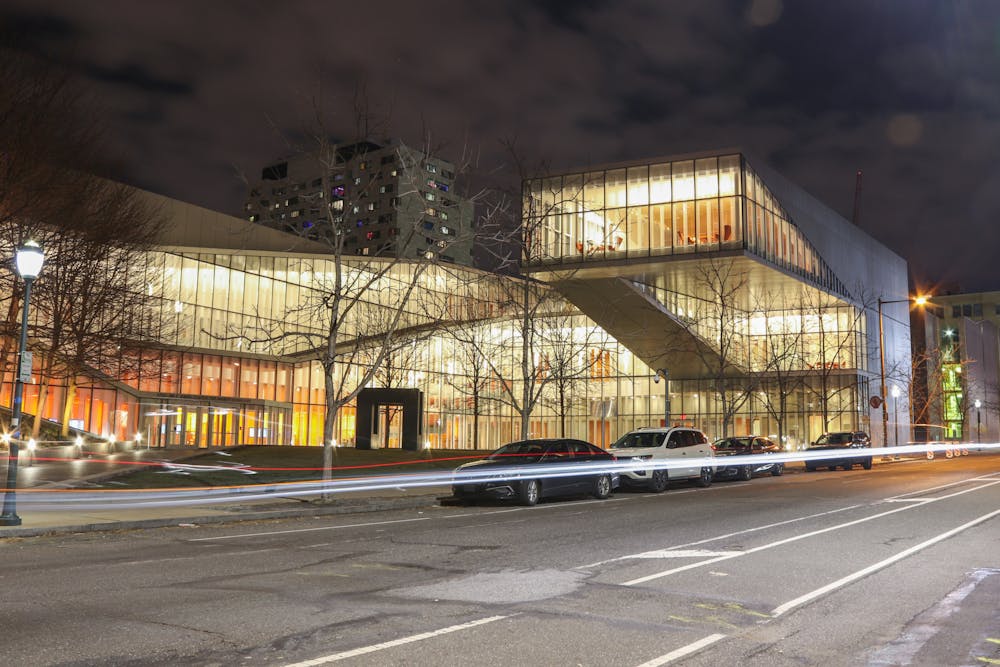
The Krishna P. Singh Center for Nanotechnology recently celebrated its 10-year anniversary.
Credit: Abhiram JuvvadiThe Krishna P. Singh Center for Nanotechnology celebrated its 10-year anniversary on Oct. 26.
Over the last 10 years, the Singh Center has purchased over 100 advanced laboratory tools, facilitating innovative research in targeted medicine and the fabrication of nanomaterials.
After the Singh Center opened in 2014, it quickly gained national recognition, becoming part of the Mid-Atlantic Nanotechnology HUB of the National Science Foundation’s National Nanotechnology Coordinated Infrastructure program, along with fifteen other sites nationwide.
The Center marked the first major academic building and cross-disciplinary building between Penn’s School of Engineering and Applied Sciences and the College of Arts and Sciences. It offers resources to Penn students and the wider community interested in nanotechnology.
“The Center is forming new partnerships with local industry and is pushing the boundaries of nano-driven research in the life sciences, quantum materials, sensors, computing hardware, the Internet of Things, and more,” Mark Allen, Scientific Director of the Singh Center, said to Giving Penn.
In particular, the Center offers grants to start-up companies interested in building their own nanotech prototypes through their Innovation Seed Grant program. The program has led to nearly $80 million in small company funding in the past ten years, allowing interested parties to access its state-of-the-art nanotechnology tools and equipment.
Further, the Singh Center’s commitment to the greater Philadelphia community prompted their decision to coordinate with the Community College of Philadelphia. Through this program, students can intern at the Singh Center and benefit from direct training with technicians in nanotechnology.
The Center also hosts the Research Experience for Undergraduates, where undergraduate students and those not enrolled at Penn have the opportunity to work with scientists on the cutting-edge of nanoscale research.
“Penn’s Singh Center is the only facility in the Philadelphia region where you can find engineers, scientists, and students of all levels, working side by side, toward a common goal: to harness the infinite world that lies beyond our vision,” Vijay Kumar, Nemirovsky Family Dean of Penn Engineering, said to Giving Penn.
Through the three pillars of their mission — community, impact, and leadership — the Singh Center has a variety of nanotechnology initiatives they plan for 2025.
The Daily Pennsylvanian is an independent, student-run newspaper. Please consider making a donation to support the coverage that shapes the University. Your generosity ensures a future of strong journalism at Penn.
Donate







